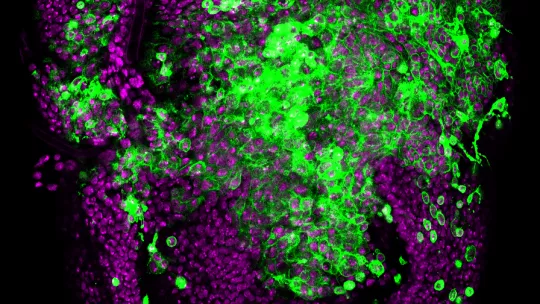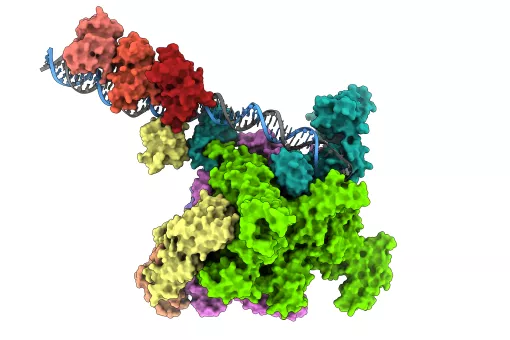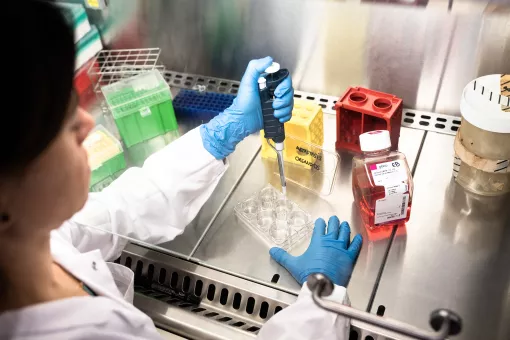Images
Most solid tumours with metastatic potential show a high degree of chromosomal instability.
A study published in the journal Developmental Cell demonstrates that chromosomal instability itself promotes invasive behaviour.
The researchers identify the oncogene Fos and the tumour suppressor Capicua as necessary molecular elements mediating this invasive behaviour.
Metastatic tumours are characterised by a high degree of chromosomal instability—that is to say a constant change in the number and structure of chromosomes they hold. In spite of this observation, it is unknown whether chromosomal instability contributes to the metastatic process. A study at the Institute for Research in Biomedicine (IRB Barcelona) using Drosophila melanogaster has demonstrated that chromosomal instability itself can induce invasive behaviour in epithelial cells and has identified the underlying molecular mechanisms involved.
To perform this study, the team directed by ICREA researcher Marco Milán generated a fruit fly model with chromosomal instability. “The cells started to actively invade adjacent tissues,” explains Marco Milán, group leader of the Growth Control and Development lab at IRB Barcelona and head of the study.
The aim was to study whether chromosomal instability itself has the capacity to stimulate invasive behaviour in epithelial cells. The results published in Developmental Cell indicate that indeed this is the case and they describe a series of molecular and cell mechanisms that favour cell migration and invasion of other tissues. In particular, the researchers have demonstrated that invasive cells use the actin cytoskeleton and activate the ERK and JNK signalling pathways to trigger a pro-invasive transcriptional programme executed by the oncogene Fos and repressed by the tumour suppressor Capicua.
“These findings are relevant in the context of cancer because they highlight the causal relationship between aneuploid genomes and cell invasion and they identify the molecular elements involved in the process,” say Najate Benhra and Lara Barrio, first authors of the study and postdoctoral researchers at IRB Barcelona. Milán adds, “the results increase our understanding of the effects of chromosomal instability on the metastatic potential of solid human tumours and identify molecular targets for the development of future treatments”.
This research has been funded by the Ministry of Science, Innovation and Universities.
Reference article:
Najate Benhra, Lara Barrio, Mariana Muzzopappa, and Marco Milán
Chromosomal instability induces cellular invasion in epithelial tissues
Developmental Cell (2018) doi: https://doi.org/10.1016/j.devcel.2018.08.021
More information. Meet Our Scientists video "Marco Milán: “Our relative the fly”
About IRB Barcelona
The Institute for Research in Biomedicine (IRB Barcelona) pursues a society free of disease. To this end, it conducts multidisciplinary research of excellence to cure cancer and other diseases linked to ageing. It establishes technology transfer agreements with the pharmaceutical industry and major hospitals to bring research results closer to society, and organises a range of science outreach activities to engage the public in an open dialogue. IRB Barcelona is an international centre that hosts 400 researchers and more than 30 nationalities. Recognised as a Severo Ochoa Centre of Excellence since 2011, IRB Barcelona is a CERCA centre and member of the Barcelona Institute of Science and Technology (BIST).









